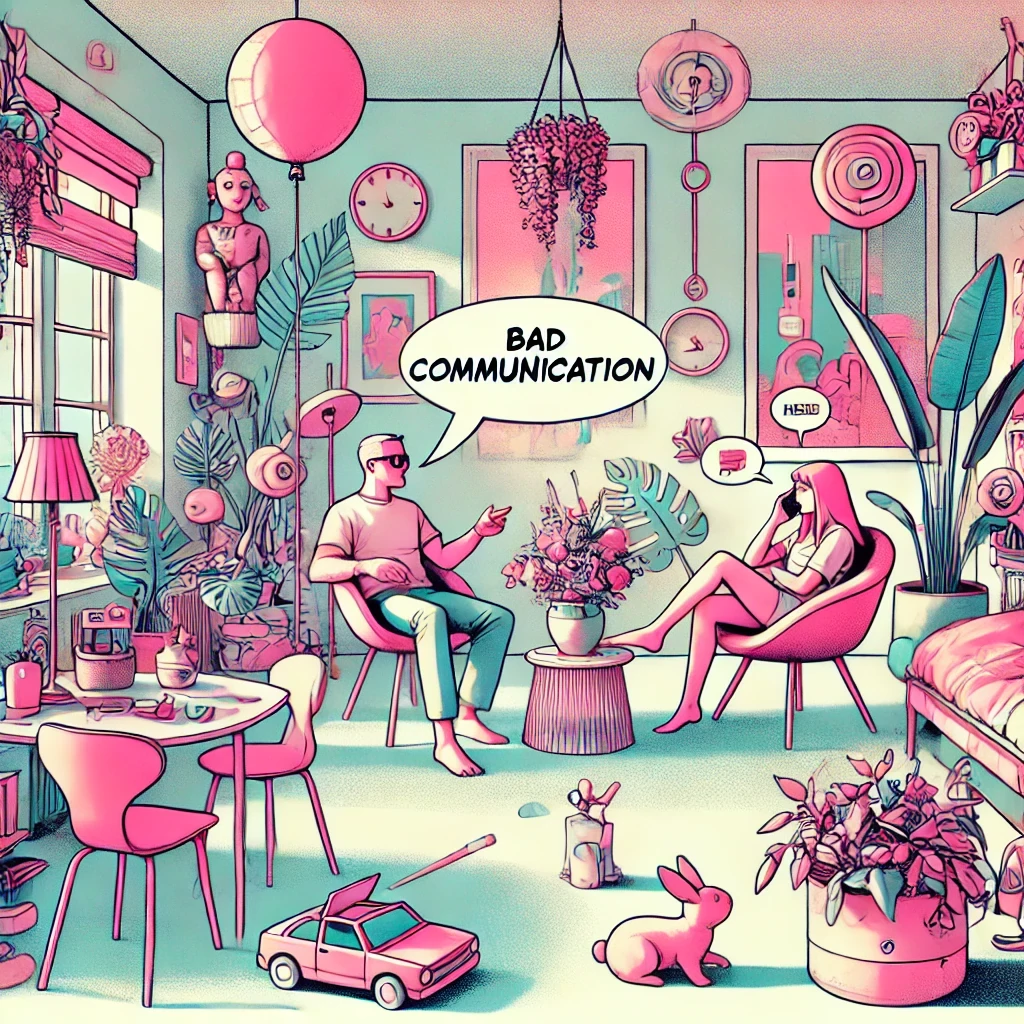
How to Repair Communication Breakdowns in Your Relationship
4 min read
Communication is the cornerstone of any healthy relationship, but not every couple masters this skill without a few bumps along the way. If you're facing challenges in your relationship due to poor communication, it's crucial to take steps to mend these issues. Here are practical strategies to enhance communication and strengthen your bond.
1. Recognize Negative Communication Styles
Understanding the root of communication issues starts with recognizing negative styles. Whether it's passive-aggressive remarks, aggressive dominance, submissive silence, manipulative tactics, or assertive clarity, each style plays a role in your interactions. Identify these patterns in your relationship to start making meaningful changes.
2. Identify Destructive Communication Patterns
Communication patterns are like dances that can spiral into negativity if not carefully managed. Recognize how certain words or behaviors trigger unhealthy cycles between you and your partner. For example, criticism may lead to defensiveness, stonewalling, or even contempt. Address these patterns by shifting towards more constructive styles, like assertiveness, which fosters respect and clarity.
3. Shift the Focus to Experiences Over Facts
When conflicts arise, avoid getting bogged down by the 'facts' of past events, which often leads to disputes over accuracy rather than resolution. Instead, focus on how these events felt and the impact they had on each person. This approach prioritizes emotional understanding over factual accuracy, facilitating deeper empathy and connection.
4. Cultivate a 'We' Attitude
Embrace a collaborative mindset by adopting a 'we' attitude. This means approaching problems together, seeking solutions, and finding common ground. By using inclusive language and focusing on shared goals, you create an environment of partnership and mutual support.
5. Manage Your Emotions
Effective communication requires emotional regulation. Recognize your triggers and learn coping mechanisms to maintain composure during tense discussions. This self-awareness prevents emotional reactions from overpowering the conversation and leading to conflict escalation.
6. Communicate Clearly and Honestly
Transparency is key in any relationship. Express your thoughts, feelings, and needs openly and respectfully. Utilize "I" statements to convey your perspective without casting blame, which encourages a more receptive and understanding response from your partner.
7. Practice Validation and Active Listening
Acknowledging and accepting your partner's feelings is crucial, even if you don't agree with them. Show empathy and understanding through active listening—give full attention, ask clarifying questions, and respond without judgment. This builds a foundation of trust and emotional safety.
8. Tackle One Issue at a Time
During disagreements, keep the discussion focused on one topic at a time. This prevents the conversation from becoming overwhelming and unproductive. By addressing issues individually, you can thoroughly explore and resolve each concern without added confusion or frustration.
9. Be Mindful of Nonverbal Cues
Your body language, tone of voice, and facial expressions significantly affect how your messages are perceived. Ensure your nonverbal cues match your words to convey sincerity and openness. This coherence helps prevent misunderstandings and builds a more trusting dialogue.
10. Increase Awareness of Communication Barriers
Reflect on personal and relational factors that hinder communication, such as past traumas, emotional barriers, stress, or even technological distractions. Addressing these underlying issues can improve your daily interactions and strengthen your connection.
11. Understand the Broader Impacts of Poor Communication
Drawing insights from research on poor communication in construction projects, it's clear that ineffective communication can lead to significant negative outcomes like delays, cost overruns, and decreased productivity. Similarly, in personal relationships, poor communication can result in misunderstandings, increased conflict, and emotional distance. Recognizing these broader impacts emphasizes the importance of proactive communication improvement strategies.
Conclusion
Improving communication in a relationship is a continuous effort that requires both partners to be actively engaged and willing to adapt. Celebrate your successes along the way and remain patient with each other as you navigate through the complexities of relationship dynamics. If challenges persist, don't hesitate to seek professional help to guide you in fostering a healthier, more open communication path.